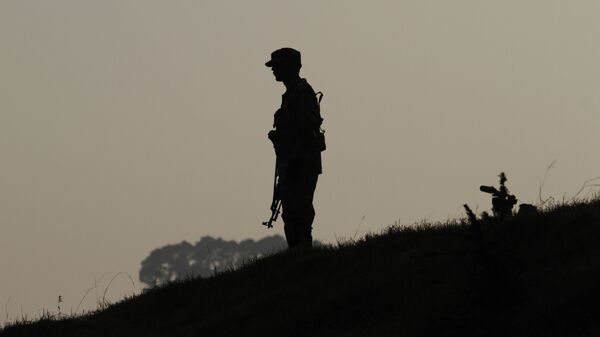Sputnik: Pakistan is becoming such an attractive spot for Daesh now, what are the chances of the group establishing itself in the country like it did in Syria or Iraq?
Muhammad Amir Rana: For the Daesh central, I think they consider Pakistan recruitment base as there are many violent and radical groups operating. What the law enforcement agencies have found last year in Pakistan: existence of three major terrorist cells of Daesh and they were recruiting people in their cells and they were trying to send them to Iraq and Syria. These cells were dismantled by the security forces. But there is another inspiration of Daesh which is among the existing militant networks in Pakistan and these militant networks are sectarian or they have other Islamist agendas in these regions. So initially they were inspired by the Daesh ideology and now they are joining Daesh.
READ MORE: Pakistani Foreign Ministry Rules Out Possibility of Daesh Seizure of Country
This is the new trend which has been seen in 2017 in Pakistan, that the old group now prefers new identity which is Daesh, and their areas of operations are concentrated in northern part of Sindh and Baluchistan province, which was once the hub of the sectarian organizations. And this particular militant network of Daesh, there is less evidence available that this is directly linked with the Daesh central, though it is linked with the Islamic State Khorasan which was once considered province of Islamic State. So both have different nature, one is cells controlled by the central Daesh and the second is the transformation of the existing militant resources into Daesh and both of course pose different kind of threat to the internal security of the country.
Sputnik: I am sure there is a lot of synergy in terms of ideology, what is Islamabad doing to prevent this disturbing tendency yet though? Have they put anything in train to begin to try initiate preventative action?
Muhammad Amir Rana: As I mentioned that the law enforcement agencies in 2017 have dismantled three terrorist cells of Daesh in certain parts of the country. At the same time certain efforts are going on for the capacity building of the counter-terrorism departments in different provinces, mainly in Sindh and Punjab. They quite effectively had countered this threat, but the challenge is somehow bit complex and we will see that as they had tackled with the sectarian output in the past, they will be able to learn from their experiences and will come up with some better responses in the coming weeks.
READ MORE: 'You Do Feel Threatened': As Pakistan Turns 70, Taliban Threat Worse Than Ever
Sputnik: This independent report by the Pakistan Institute for Peace Studies comes very much at the same time when Mr. Trump announced via Twitter that he was going to cease financial aid to Pakistan because of these concerns of terrorism within the country. With Daesh increasing its footprint in Pakistan could this fact prompt the US to take any specific action in regard to Pakistan further? And what could that be?
Muhammad Amir Rana: I don’t think so. The US has multiple options to soaring up its approach to Pakistan and as far as the militant threat is concerned, as I mentioned the IS [Daesh] is also concentrated in Afghanistan which is attracting the militants from the region as well. So nobody had stopped the US and the NATO forces to launch operations against Daesh not only in the bordering region but as well as its footprints are increasing in the north of Afghanistan. Yes this is to provide a common ground to Pakistan and the US to go and adopt some common approaches against a common threat of Daesh. But what we have seen is that Washington is less receptive towards the threat of Daesh in the region. They are more concerned about the Taliban networks in Afghanistan. We know that this is a big problem for Afghanistan and they are having an influence or contesting the 40% territory of Afghanistan but for Taliban there are many political options also available, which hasn’t been exploited yet.
The threat which required a common security approach or the common security paradigm and the US and NATO is not ready to address and where they can find a lot of common objective, the threats which they can counter effectively to reduce a threat level. If specifically you look at,Daesh, it has managed six attacks in Pakistan but how many attacks they managed in Afghanistan? And if you just look at the last three weeks, the security situation in Kabul you will see that most of the deadliest attacks are being conducted by Daesh in Kabul and this is posing I think the greater threat for the stability of the region for Pakistan and Afghanistan.




